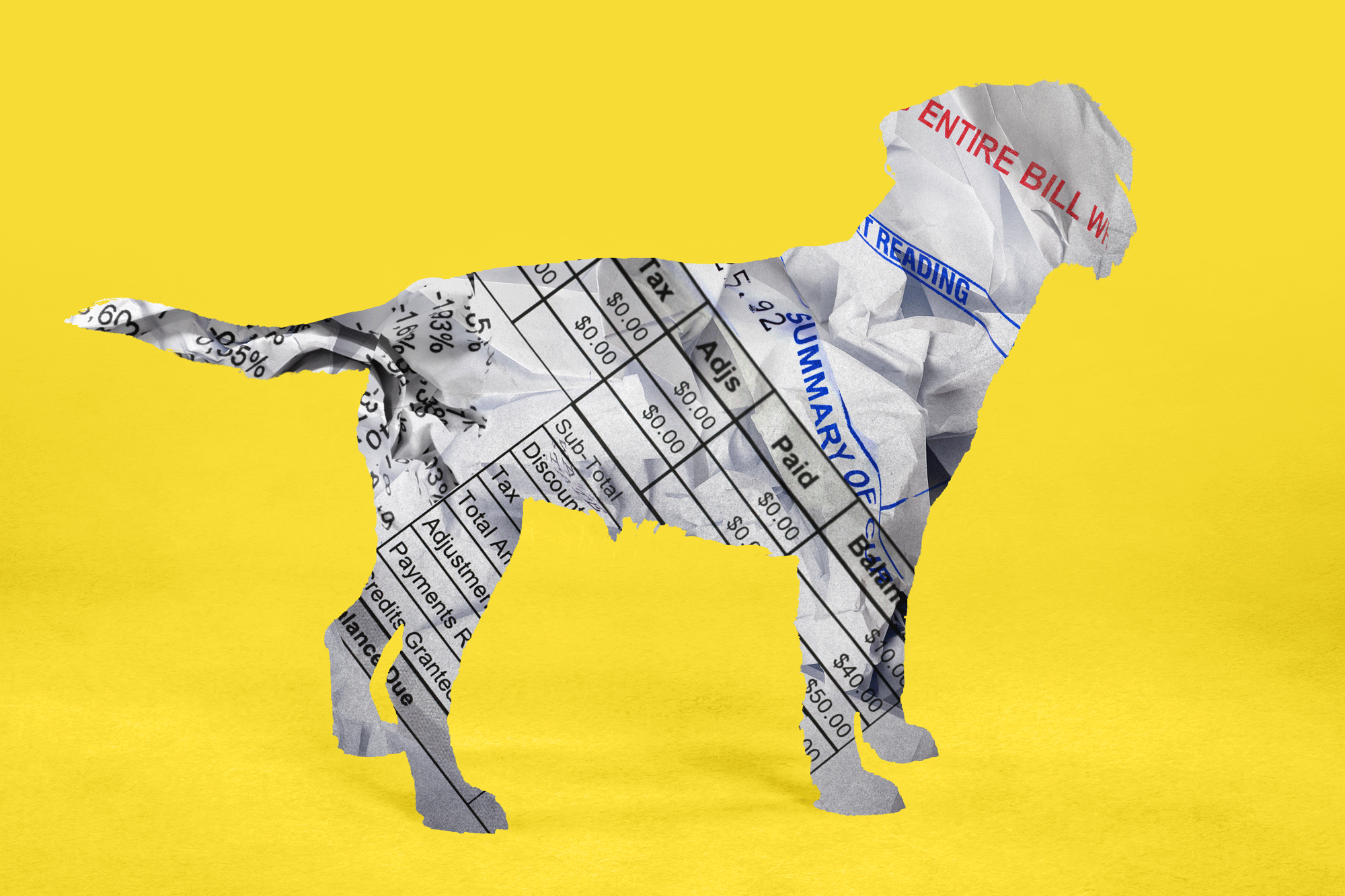West L.A. pet hospital caters to high-end clients
All the amenities of modern medicine are available at a new West Los Angeles hospital. There’s 24-hour emergency care, a team of surgeons, psychology and physical therapy units, MRI and CT machines, one of the top oncologists in the country.
Medical assistants busily roam the halls, soothing patients’ fears with smiles, kind words or gentle touches. But they have to watch out: The patients can bite.
They’re dogs, cats and other pets being treated at the VCA West Los Angeles Animal Hospital, which at 42,000 square feet is the largest pet hospital west of the Mississippi River.
It is one of only a handful of U.S. animal hospitals that offer such sophisticated procedures as bone-marrow transplants for dogs — at a startling $16,000 — as well as radiation therapy, acupuncture treatment and hydrotherapy pools.
“I’ll be honest with you, this is nicer than a lot of human hospitals I’ve been in,” said Richard Finn, who drove from his Dallas home to have his dog, Jason, undergo a bone-marrow transplant. “For the money I’m spending, I’m happy to see it’s a nice facility.”
VCA Antech Inc., which owns more than 600 pet hospitals in North America, opened the facility near its headquarters in February. The hospital already has attracted an elite clientele that includes the Los Angeles Zoo, which has rushed hyenas and orangutans in for emergency treatment.
VCA opened the huge facility even as the industry continued to feel the effects of the Great Recession and the weak recovery. Many pet owners have delayed treatment for their pets or skipped it altogether.
Moreover, the number of pets in the United States declined from 2006 to 2011 — ownership of dogs fell 2% and that of cats 6% — according to a study by the American Veterinary Medical Assn.
Even so, VCA reported record third-quarter sales of $464.1 million, a 7% gain over last year’s third quarter, largely by acquiring smaller, independent operations. Revenue at operations open for the last 12 months, though, rose only 1.1%.
Art Antin, VCA’s co-founder and chief operating officer, said that opening the three-story facility during sluggish times for the industry made sense for several reasons.
VCA was able to consolidate two smaller nearby hospitals into the new flagship on Sepulveda Boulevard. And the comprehensive care it offered gave the company a strong lure to attract some of the best veterinarians in the country, Antin said.
“The more you give to the clients in ways to care for their pets, the more experienced doctors want to work at the hospital,” he said. “It’s no different than human medicine: If you have a top-notch hospital, you attract the best doctors.”
He wouldn’t disclose the cost of renovating the leased building, which had long housed the Automobile Club of Southern California, but estimated it would generate $22 million to $25 million a year in revenue.
Kevin Ellich, a research analyst at investment firm Piper Jaffray, said he believes VCA was wise to invest in a premier hospital, even amid the industry’s slowdown. He said the animal healthcare business is improving, with pet owners more willing to spend than they were during the recession.
He recommends buying the stock.
“Having a flagship showcase like that, I don’t think there’s anything wrong with that, especially when you’re trying to recruit new veterinarians to come work for you,” Ellich said.
Finn was so impressed with the hospital that he traveled nearly 1,500 miles last spring for the surgery on his dog, a Welsh corgi diagnosed with lymphoma this year.
By the time he loaded Jason into his Lexus and made the drive back to Texas, Finn’s bills had reached $30,000. That included payments to a local vet, travel costs and the $16,000 he paid VCA.
For Finn, financially secure at 25 thanks to a trust fund, the decision was easy.
“My animals are an integral part of my life because I am at home so much,” he said. “My animals are not disposable; they’re my children.”
The hospital, though, has critics among its customers.
Amy Chang, a 34-year-old Westwood resident, said she was impressed the first time she stepped inside the hospital.
“When you enter VCA hospital, it’s like entering the lobby of a swanky hotel,” Chang said.
Her feelings soured after a doctor examined her cat, which had been vomiting. The doctor said her cat probably had cancer and needed several tests, a diagnosis that didn’t seem right to her.
“He definitely played on our emotions,” Chang said. “He said he has cancer and you only have a few months, not years. At that point I started crying.”
She said she was required to pay a bill of about $1,200 before the staff would return her cat so she could leave.
A veterinarian elsewhere diagnosed the cat with a food allergy, not cancer, she said. After changing the brand of food, the vomiting stopped. Six months later, Chang is still furious.
“Look at the hospital itself. It looks that shiny and bright thanks to the funds from idiots like me who would do anything for their furry kids,” she said.
Antin declined to speak about Chang’s case specifically, saying he would be happy to investigate if she filed a complaint with the company.
“I will say there is no policy to up-sell at all in any hospital,” he said.
Deborah Fehn, on the other hand, appreciated the advanced options VCA offers. She drove 20 miles from her home in Palos Verdes Estates to have a veterinary ophthalmologist examine the inflamed eye of her Yorkshire terrier, Madison.
The examination cost time and money, but Fehn said there’s peace of mind knowing she did all she could for Madison.
“Obviously, the thought of going to an ophthalmologist as opposed to a regular veterinarian is they have the equipment to look inside the eye,” Fehn said.
VCA and others in the business are capitalizing on the growing willingness of pet owners to spend big money and use pet insurance for their animals.
“It’s what the pet industry calls the humanization of pets,” said Hal Herzog, a Western Carolina University psychology professor who has studied the relationship between humans and animals for two decades.
“We increasingly think of pets as friends and family members,” he said. “So when your family member gets sick, your kid gets sick, do you say, ‘This treatment is going to cost $10,000. Do I keep Suzy alive?’ You get the money.”
It’s perfectly healthy, as long as people can afford the veterinary expenses, Herzog said.
Herzog also noted that it’s not always good to use medicine to delay the inevitable. “There comes a time that prolonging an animal’s life may make you feel good, but it’s prolonging the suffering of the animal,” he said.
Finn turned to the VCA hospital as a last resort to extend the life of his energetic, 7-year-old Jason, which likes to chase squirrels by day and curl up with Finn at night in his ranch-style home in Dallas’ Northaven Park neighborhood.
With conventional chemotherapy, Jason had less than a 5% chance of beating cancer, said Dr. John Chretin, head of the hospital’s oncology unit. The bone-marrow procedure provided a 40%-or-better chance of beating the disease, he said.
Wealthy friends and acquaintances, Finn said, urged him to let go.
“People scoff at spending $30,000 on medical care for a dog,” he said. “I honestly don’t care. People can say whatever they want. It’s my money. I’ll spend it on anything I please. I’m spending it on Jason’s care because I can afford to.”
With that attitude, Finn piled Jason, wearing a burnt-orange Tommy Bahama bandanna, into the front seat of his Lexus in May and began a three-day drive to L.A. They stayed in a suite at the Hyatt Regency Century Plaza in Century City the night before Finn took his sick pet to the hospital.
The next day, Chretin’s staff harvested healthy stem cells from Jason, then put the dog through more than two hours of total-body radiation, hoping to kill any remaining cancer. The harvested stem cells — confirmed to be cancer-free — were then restored into Jason’s body.
After his immune system recovered during one week in a sterile isolation room, Jason was reunited with Finn. Tests recently indicated that Jason is cancer-free.
“If they can get rid of Jason’s cancer so I can have him three, four, five more years, so he can live a full life, I’m happy with that,” Finn said. “I’ll add to their revenue.”
More to Read
Inside the business of entertainment
The Wide Shot brings you news, analysis and insights on everything from streaming wars to production — and what it all means for the future.
You may occasionally receive promotional content from the Los Angeles Times.











